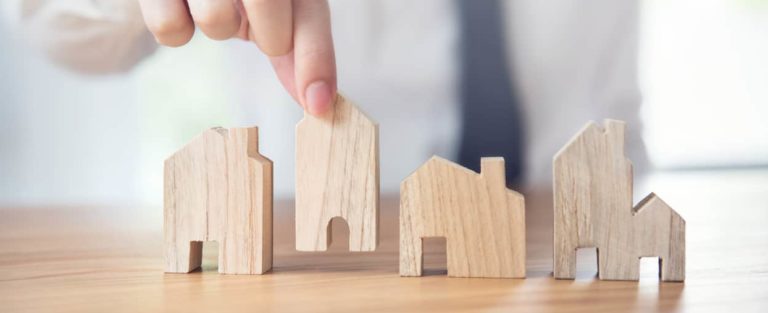Climate change has become one of the most pressing issues of modern times. The housing market’s contribution to carbon emissions is likely to come under the spotlight sooner or later.
The topic of global warming has spent many years on the backburner of public discussion. But now climate change activists are increasingly making their voices heard, while new data has revealed the true extent of the crisis, and it’s become almost impossible to ignore.
The UK government has pledged to reach net-zero carbon emissions by 2050, and is now under pressure to solidify this target with an actual strategy.
This is where the housing sector arguably plays a major role. At present, the built environment accounts for 40% of all the UK’s carbon emissions, according to UKGBC. While the carbon footprint of buildings has reduced since 1990, there’s still a long way to go to decarbonise the existing housing stock.
It is safe to say that the sector will form at least part of the focus in the government’s plans, and indeed already has to some extent begun to see some changes to address the issue.
Green solutions – and the downsides
Last year, housing secretary Robert Jenrick revealed his department’s plans for a “green housing revolution“. A new green standard for new homes means fossil fuel heating systems – like gas boilers – will be replaced with clean technologies. By 2025, all new properties being built will need to instead use air source heat pumps, solar panels and triple glazing, among other technologies, to reduce emissions from the home.
The aim of this plan is to cut carbon emissions by up to 80% from 2025 for all new-build homes. This will, according to the outline provided by Jenrick, protect the environment while keeping bills low for residents.
However, the changes will come at a cost. The Ministry for Housing estimates the price of meeting the new standards will be around £4,487 for a house and £2,256 for a flat. This could obviously prove a barrier for many developers, and it is not yet clear how the government plans to overcome this.
Whether developers will be able to achieve higher prices for properties that have been future-proofed remains to be seen. According to Dr Lucy Greenwood of Savills, there is little historical evidence to show that higher energy standards mean higher sold prices.
However, she adds: “Occupier attitudes are changing fast in this area and we are monitoring the potential emergence of a premium to sales rates and pricing.”
Changing attitudes
Could the housing industry be on the cusp of a new industrial revolution? That’s one idea touted by Marco Abdallah, head of engineering at Drees & Sommer UK. He believes that while addressing the country’s housing crisis by building 300,000 new homes a year is vital, this must be achieved in a sustainable, environmentally friendly way.
He says: “It is essential that the cost of embracing carbon-neutral development be viewed as a long-term investment, or housebuilding risks reverting to quick-fixes and poor-quality developments.”
“This will demand a much more granular approach to construction, to the extent of analysing each and every material used in the building process to determine a home’s overall carbon footprint. Fortunately, the Future Homes Standard (due for completion by 2025) was announced[last year], marking a positive step forward to ensure housing is fit for the future.”
Property investment: tips for buyers
Whatever your opinion on climate change, the issue is not going away, and the housing market will be a key focus for change. If you’re a prospective property investor or homebuyer, you can act now to future-proof your investment against the effects of new targets and rules aimed at reducing carbon emissions.
- Buy a new-build – a brand new property is generally much more energy efficient than an existing one. One study looking at energy performance certificates (EPC) found that more than 80% of new-builds have the top A or B rating for energy efficiency. As housebuilding standards continue to rise, this is likely to further improve.
- Focus on smart home technology – Some smart home technology can improve the energy efficiency of a property. This includes apps to control heating and hot water to save money, as well as smart energy efficient lighting. Some property investments are built with all the smart home technology included.
- Invest in eco-friendly appliances – If you’re buying a new-build, the chances are all your appliances will come with it, and if you buy off-plan you may get to choose which ones. If not, buying the most energy efficient appliances will help to future-proof your property.
- Choose a location away from flood risks – Many argue that the world is getting warmer, and flood risks are getting higher. It could become more vital than ever to choose a property investment away from areas deemed a high flood risk.
- Public transport vs roads – Transport is likely to be another major target in the government’s climate change strategy, with moves already being made across the country to make transport cleaner. Choosing a property investment close to public transport, cycle lanes and pedestrian access could be a wise choice, reducing the need for individual cars.
- Electric car charging points – Last year, the government announced that it would make electric car chargepoints mandatory for all new-builds. There are also plans to ban selling new petrol, diesel or hybrid cars in the UK by 2035, in favour of electric vehicles, so this is something to factor into your property purchase.
- Think about EPC ratings – Since April 2018, the minimum EPC rating for a privately rented property is E, and this is expected to increase. One day, this could apply to all homes, so increasing the EPC rating of your property is likely to be a worthy investment.










